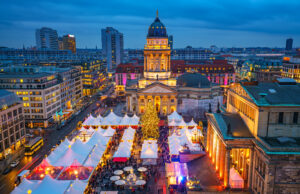
Besides great sights, an interesting history and many exciting destinations, Dover has a lot more to offer. Here you will find many helpful tips to enjoy your vacation in Dover.
Here you can find hotels in the area of Dover
Just type in your destination and get many different suggestions.
Sights in Dover
In Dover, England, there are many historical and interesting sights to see. The most popular attraction is probably Dover Castle, a medieval castle that has been standing for over 800 years. Visitors can explore the castle grounds, the secret wartime tunnels, and the Great Tower. Another popular attraction is the Roman Painted House, which is a very wellpreserved Roman house from the 2nd century AD. There are also several museums in Dover, including the Dover Museum, the Roman Museum, and the Hellfire Caves. Lastly, visitors can take a ferry to see the famous white cliffs of Dover.
History of Dover
Dover is a town and major ferry port in the home county of Kent, in South East England. It faces France across the Strait of Dover, the narrowest part of the English Channel, and lies southeast of Canterbury and east of Maidstone. The town is the administrative centre of the Dover District and home of the Dover Calais ferry through the Port of Dover. The surrounding chalk cliffs are known as the White Cliffs of Dover.
The town has been occupied since the Stone Age according to finds made in the town. During the Iron Age the area became part of the Celtic territory of Britannia. The town grew into a thriving port during the Roman period and was an important base for the Classis Britannica, the Roman fleet of Britannia. Dover gets its name from the Latin word Dubris, meaning waters.
The lowlands around Dover were once part of the sea bed and at times the coastline has extended further out into the Channel than it does today. The sea has receded since then and the land has been steadily uplifted, rising by around 3mm each year. This is resulting in the cliffs slowly moving backwards. In 2014, it was estimated that the cliffs were receding at a rate of 1.3m a year.
The town of Dover has been known by a number of names throughout its history, each reflecting a different stage in its development. The earliest name, recorded in the 1st century AD, is the Latin Dubris, meaning waters.
In the AngloSaxon period, the town was known as Dofras or Dovras, meaning water meadow. By the 10th century, it had become known as Dovorre or Dovere, meaning ‘shore or bank’. In 1067, William the Conqueror gave the town its market charter, calling it Dover.
The market town developed into a prosperous port and during the 12th century, it was an important point of departure for crusade traffic to the continent. It also grew as a target for attacks by the French; the first recorded raid being in 1350. In 1539, Dover became one of the Cinque Ports, a group of five coastal towns responsible for providing ships and men for the royal fleet.
During the Napoleonic Wars, Dover was considered to be the key to Britains defences and an invasion force sailed from Boulogne but was defeated in The Battle of Dover Strait in 1652. In 1826, a harbour commission appointed by William IV began to build Grand Shaft, a magnificent staircase leading from the Western Heights down to the new Admiralty Pier.
Today, Dover is a vibrant and cosmopolitan town with a rich history and heritage. The port remains an important link between Britain and the continent, with ferries sailing to Calais and Dunkirk. The town’s museums and galleries tell the story of its past, while its shops, restaurants and cafes offer a taste of the present.
Vacation in Dover
The English seaside town of Dover is a popular holiday destination for both UK residents and international travelers. The town is located on the southeast coast of England, in the county of Kent. It is easy to reach by car, train, or ferry from London. Dover is famous for its white cliffs, which can be seen from the town’s beaches and from the famous archaeological site of White Horse Hill. The town also has a number of other historical attractions, including Dover Castle, the Roman Painted House, and the Doomsday Book.
For those interested in outdoor activities, Dover provides plenty of opportunities for hiking, cycling, and water sports. There are also several golf courses in the area. The town has a variety of shops and restaurants, as well as a lively nightlife scene. Accommodations range from camping and caravan sites to luxury hotels.
Whether you’re looking for a actionpacked vacation or a relaxing getaway, Dover has something to offer everyone.
Other vacation destinations in England:















